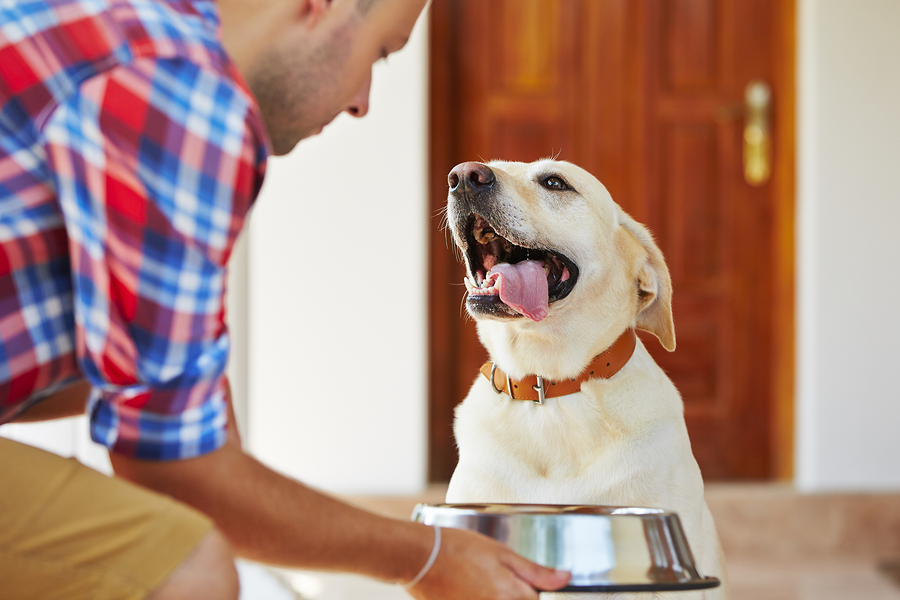
This post may contain affiliate links. We are compensated for referring customers to our affiliate partners.
So you just found out that your beloved dog has diabetes. This can be a scary thing to find out and you are likely very worried about how you are going to care for them.
First, take a deep breath.
While this can be unnerving to learn, you should know that with good care, your canine companion can still lead a long healthy life.
Diabetes And Dogs
Diabetes is a rather common condition among humans, but not many know that it is pretty common in dogs as well. Diabetes is a kind of diseased state that causes the body to from either an absolute shortage of natural insulin or from an incorrect response from the cells to the insulin that is currently being produced. This prevents their body from being able to turn sugar into energy and can result in an excessively large about of sugar to remain in the blood.
Symptoms Of Diabetes In Dogs
If your dog has any of the following symptoms, it could be an indicator that your dog has diabetes:
- Weight loss
- Change in appetite
- Excessive thirst
- Increased urination
- Urinary tract infections
- Dehydration
- Unusually fruity or sweet smelling breath
- Lethargy
- Vomiting
- Blindness or cataract formation
- Chronic skin infection
Causes Of Diabetes In Dogs
There is yet to be an exact cause for diabetes in dogs. However, obesity, chronic pancreatitis, autoimmune diseases, genetics, and certain medications have been shown to play a huge role in the development of diabetes.
Feeding Your Diabetic Dog
The kind of diet that is best for your dog will depend on the unique needs of your dog. Diabetic dogs can do quite well on a number of different diets so long as their meals are nutritionally balanced and high quality dog food that does not contain any simple sugars to worry about.
However, it is important to note that several diabetic dogs do show great results from having a diet that contains lower amounts of fiber and carbohydrates and a higher amount of protein. In fact, if your dog happens to be overweight, this is probably the best diet for them in order to help them shed those extra pounds and lower their insulin needs.
If you are unsure about what kind of diet is best for your diabetic dog’s needs, then make an appointment to see their vet or nutritionist. Typically, these canine nutrition professionals will know better than anyone on how to best serve your dog’s nutritional needs while keeping their medical condition in mind.
Tips To Keeping Your Diabetic Dog Healthy
While feeding your diabetic dog the best quality dog food is important, it isn’t the only thing you should be doing when it comes to their meal time or daily activity. Here are just a couple more ways you can ensure that your diabetic dog remains healthy and happy for a long time:
A feeding schedule is key
One of the most important ways for you to manage your diabetic dog’s sugar levels is to serve their meals at fixed times each day. Each meal needs to be timed to when you give your dog their insulin injection. For example, giving your dog their insulin shot within an hour of eating will help to balance the rise of blood sugar from their dog food. In order for the insulin to work effectively after each meal, it is important that the food contains close to the same amount of calories and ingredients with every meal.
Time your dog’s treats carefully
Avoiding giving your diabetic dog random treats and snacks throughout the day as this will cause their blood sugar to spike in a way that the insulin may not be able to control or manage. Instead, provide your diabetic dog with treats during times when you know the insulin will be at its peak effectiveness. Typically, this will be around 4 to 6 hours after their insulin injection.
Not all dog treats are equally healthy
Any dog treats that are high in sugars and carbohydrates needs to be avoided entirely. Instead try choosing treats that are high in protein such as freeze-dried meat or simply giving your dog pieces of lean meat. However, you still need to be careful not to overdue the treats. Your dog treats should make up less than 10 percent of your dog’s daily calorie intake.
Exercise, but don’t overdo it
Regular exercise can also aid your dog in losing weight or lowering their blood sugar levels. However, you still should exercise with your day during the same length of time and at the same intensity level every day. An unusually vigorous or long workout runs the risk of causing their blood sugar levels to crash. If you do plan to take a tough hike with them, try talking with your vet about adjusting their insulin first to stay on the safe side of things.
Check your dog’s blood sugar levels often and adjust when needed
Having trouble managing your dog’s blood sugar levels? It can take a couple months before their levels can reach a stability so don’t worry if your dog’s levels aren’t under control quickly. It takes some time and with scheduled feedings and activity, your diabetic dog will find the balance they need to remain healthy and happy. However, it is important to note that losing weight and other conditions can alter your dog’s need for insulin, so it is best to check their levels often and adjust accordingly.
